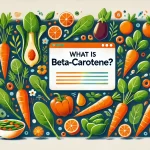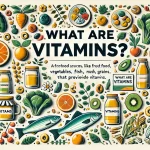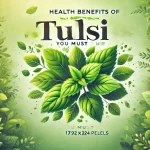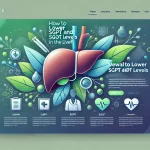Vitamins are organic compounds essential for the body to function properly. They are required in small amounts for various metabolic processes, including energy production, immunity support, and cell repair. Since the body cannot produce most vitamins, they must be consumed through diet or supplements. The term “vitamin” originated from “vital amines,” a concept introduced by Casimir Funk in 1912 when studying essential nutrients.
Vitamins are categorized into two main types: fat-soluble (A, D, E, and K) and water-soluble (B-complex and C). Each vitamin plays a unique role in maintaining health and preventing deficiencies. For instance, Vitamin C strengthens immunity, while Vitamin D promotes bone health.
Types of Vitamins and Their Solubility
| Type | Solubility | Examples |
|---|---|---|
| Fat-Soluble | Dissolves in fat | A, D, E, K |
| Water-Soluble | Dissolves in water | B1, B2, B3, B5, B6, B12, C |
Historically, deficiencies in vitamins like B1 (thiamine) caused diseases like beriberi, while scurvy resulted from a lack of Vitamin C.
Types of Vitamins and Their Functions
1. Vitamin A
Vitamin A, also known as retinol, plays a vital role in maintaining vision, immune function, and skin health. It is a fat-soluble vitamin stored in the liver.
Sources of Vitamin A:
- Animal sources: Liver, fish oils, eggs, and dairy products.
- Plant sources: Carrots, spinach, sweet potatoes, and red bell peppers (contain beta-carotene, a precursor).
Benefits of Vitamin A:
- Enhances night vision and prevents night blindness.
- Boosts the immune system.
- Supports cell growth and development.
Deficiency Effects:
- Night blindness.
- Increased susceptibility to infections.
Historically, Vitamin A deficiencies were prevalent in areas with limited access to diverse diets, leading to widespread blindness.
2. Vitamin B1 (Thiamine)
Vitamin B1, or thiamine, is water-soluble and essential for converting food into energy. It plays a crucial role in nerve function and carbohydrate metabolism.
Sources of Vitamin B1:
- Whole grains: Brown rice, oats, and wheat germ.
- Meat: Pork, liver, and fish.
- Legumes: Lentils and peas.
Benefits of Vitamin B1:
- Converts carbohydrates into energy.
- Maintains healthy nerves and muscles.
- Improves mental clarity and focus.
Deficiency Effects:
- Beriberi (weakness, heart issues, and nerve damage).
- Fatigue and irritability.
Historically, beriberi was common in populations consuming refined grains with stripped nutrients, such as white rice.
3. Vitamin B2 (Riboflavin)
Vitamin B2 is crucial for energy production, cell growth, and red blood cell formation.
Sources of Vitamin B2:
- Dairy products: Milk, cheese, and yogurt.
- Leafy greens: Spinach and broccoli.
- Eggs and lean meats.
Benefits of Vitamin B2:
- Supports energy production.
- Promotes skin, hair, and eye health.
- Prevents anemia.
Deficiency Effects:
- Cracked lips and mouth sores.
- Eye disorders like cataracts.
Riboflavin deficiency was historically addressed by fortifying grains and cereals.
4. Vitamin B3 (Niacin)
Niacin plays a role in energy metabolism, DNA repair, and hormone production.
Sources of Vitamin B3:
- Meat: Chicken, turkey, and beef.
- Nuts: Peanuts and seeds.
- Whole grains.
Benefits of Vitamin B3:
- Lowers cholesterol levels.
- Enhances brain function.
- Supports skin health.
Deficiency Effects:
- Pellagra (diarrhea, dementia, and dermatitis).
- Fatigue and depression.
Pellagra outbreaks in the early 20th century were resolved with dietary interventions rich in niacin.
5. Vitamin B5 (Pantothenic Acid)
Pantothenic acid aids in synthesizing coenzyme A, essential for energy metabolism.
Sources of Vitamin B5:
- Meats, fish, whole grains, and avocados.
Benefits of Vitamin B5:
- Produces hormones and red blood cells.
- Improves wound healing.
Deficiency Effects:
- Fatigue and irritability.
- Burning feet syndrome (rare).
6. Vitamin B6 (Pyridoxine)
Pyridoxine is essential for brain development, neurotransmitter production, and hemoglobin synthesis.
Sources of Vitamin B6:
- Bananas, chickpeas, and fish (salmon).
Benefits of Vitamin B6:
- Supports mood regulation.
- Boosts immunity.
7. Vitamin B12 (Cobalamin)
Vitamin B12 is vital for red blood cell formation and neurological function.
Sources: Meat, dairy, and fortified cereals.
8. Vitamin C
Vitamin C (ascorbic acid) boosts immunity, collagen production, and wound healing.
Sources: Citrus fruits, berries, and bell peppers.
9. Vitamin D
Vitamin D supports bone health by regulating calcium and phosphorus levels.
Sources: Sunlight exposure, fortified milk, and fish.
10. Vitamin E
Vitamin E acts as an antioxidant, protecting cells from damage.
Sources: Nuts, seeds, and spinach.
Historical Perspective on Vitamins
The discovery of vitamins transformed medicine and nutrition. In the 18th century, scurvy caused by Vitamin C deficiency killed sailors. By the early 20th century, scientists identified specific vitamins as essential nutrients. Casimir Funk coined the term “vitamins” in 1912.
Table: Milestones in Vitamin Discovery
| Year | Discovery | Scientist |
| 1912 | Vitamin B1 (Thiamine) | Casimir Funk |
| 1922 | Vitamin E | Herbert Evans |
| 1930 | Vitamin C | Albert Szent-Gyorgyi |
Conclusion
Vitamins play a critical role in maintaining overall health by supporting vital body functions like energy production, immunity, and cell repair. Understanding the different types of vitamins, their sources, and their historical significance can help individuals make informed dietary choices to prevent deficiencies and improve well-being.
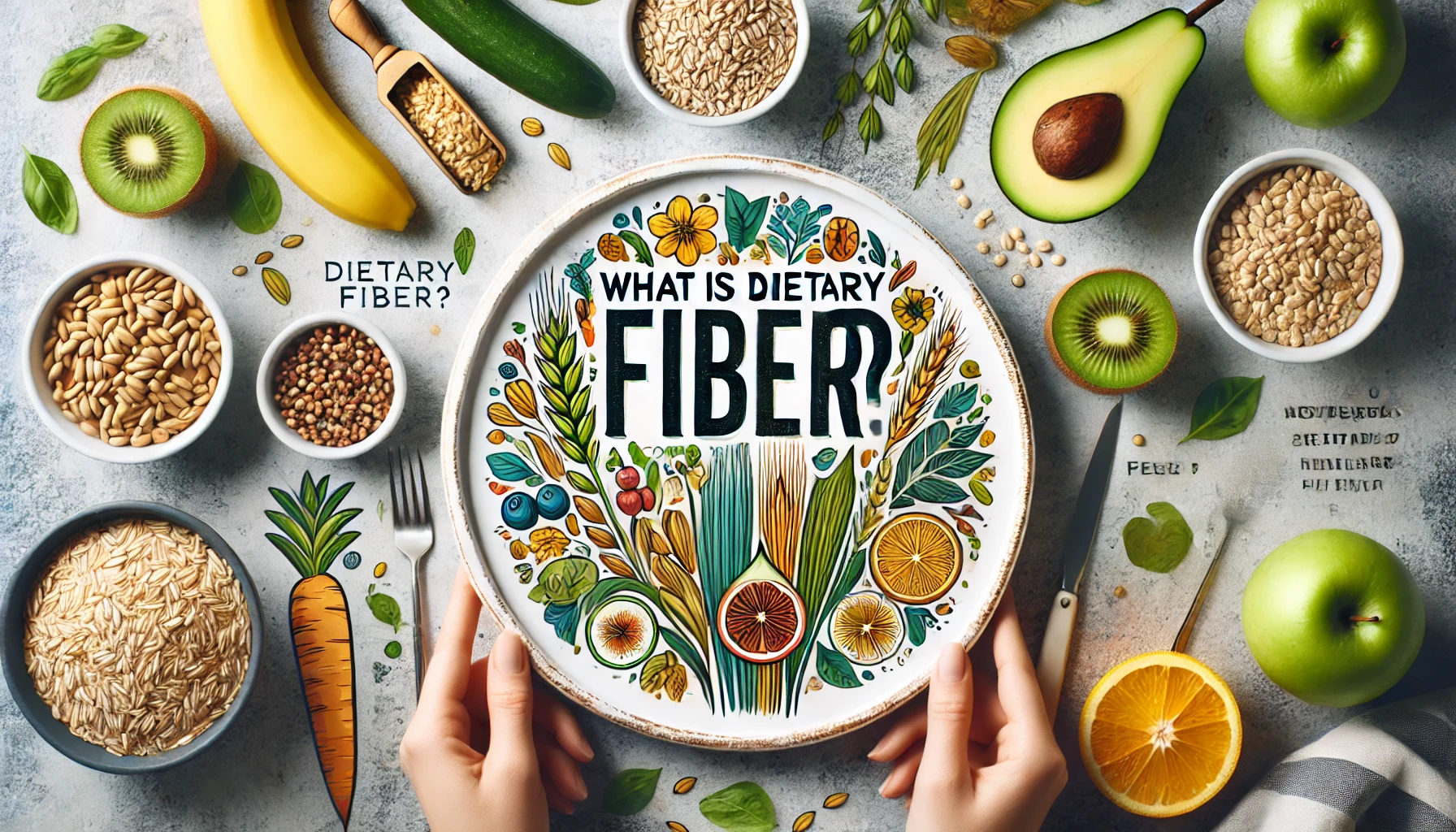
What Is Dietary Fiber?
Dietary fiber is a plant-based nutrient essential for digestive health. Unlike proteins, carbohydrates, and fats, …
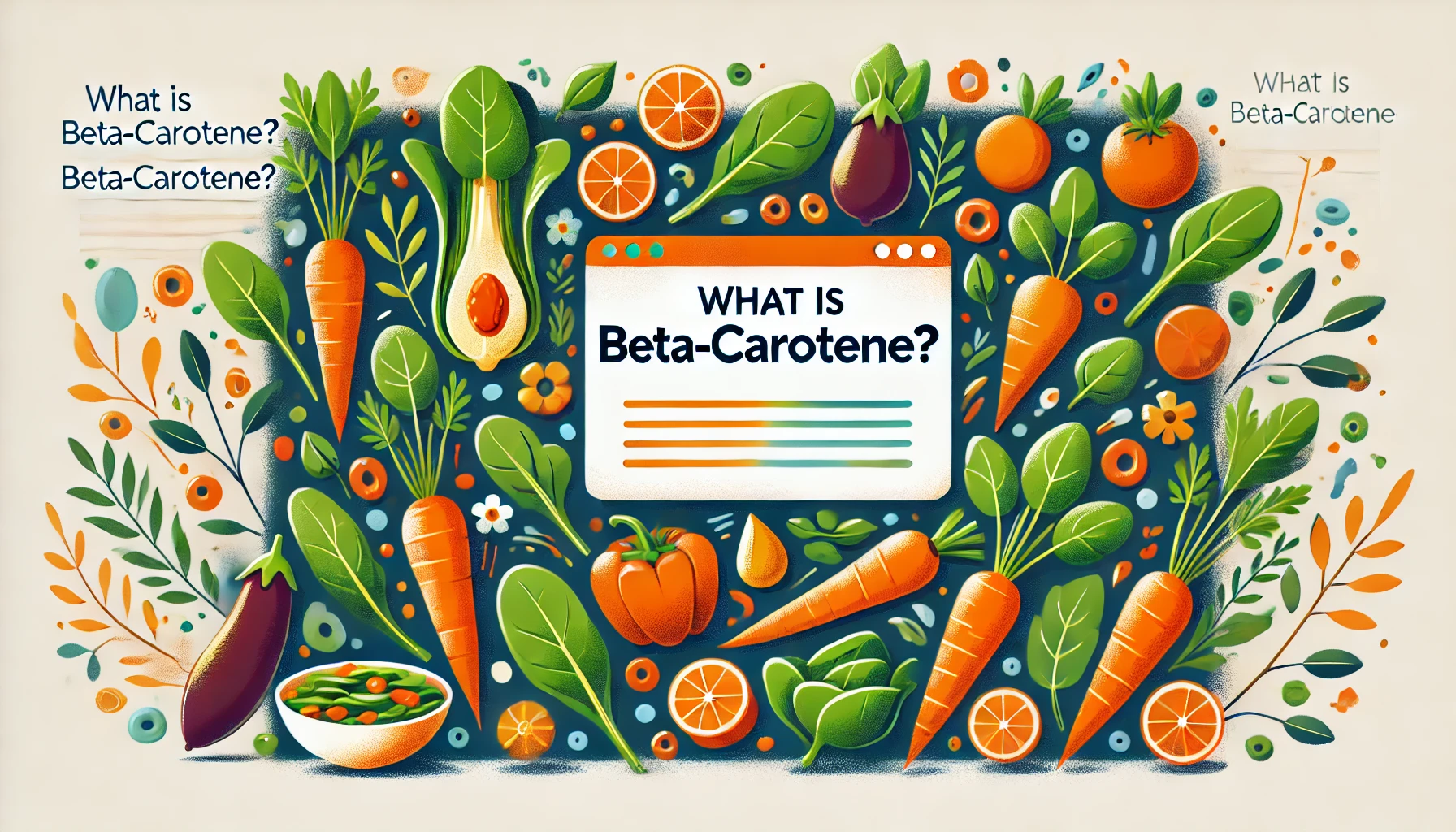
What is Beta Carotene?
Beta-carotene is a red-orange pigment found in plants and fruits, especially carrots and colorful vegetables. …
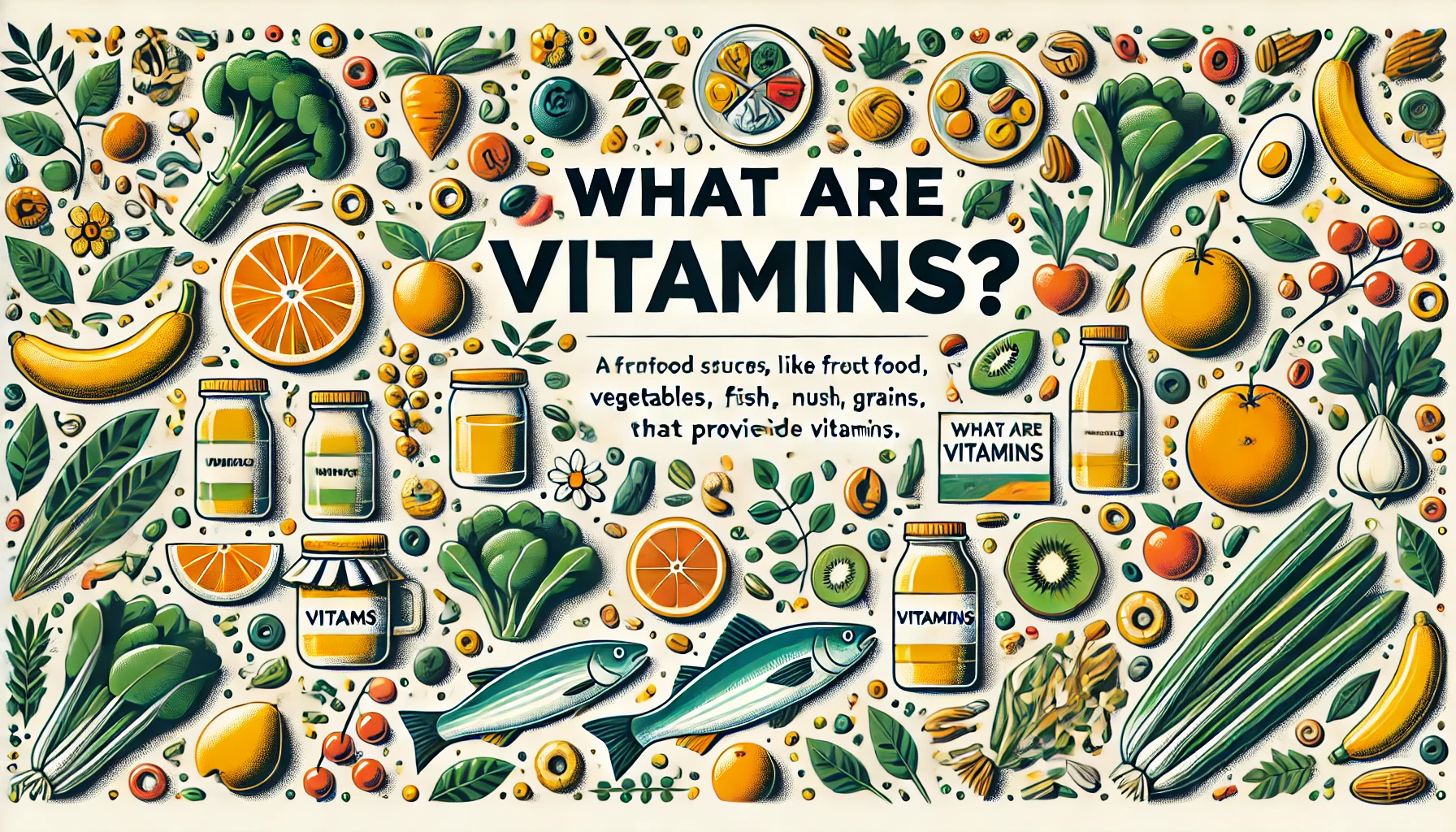
What are Vitamins?
Vitamins are organic compounds essential for the body to function properly. They are required in …

10 Reasons Why Sweet Potato is a Superfood
Sweet potatoes are not only delicious but also incredibly nutritious, earning their title as a …
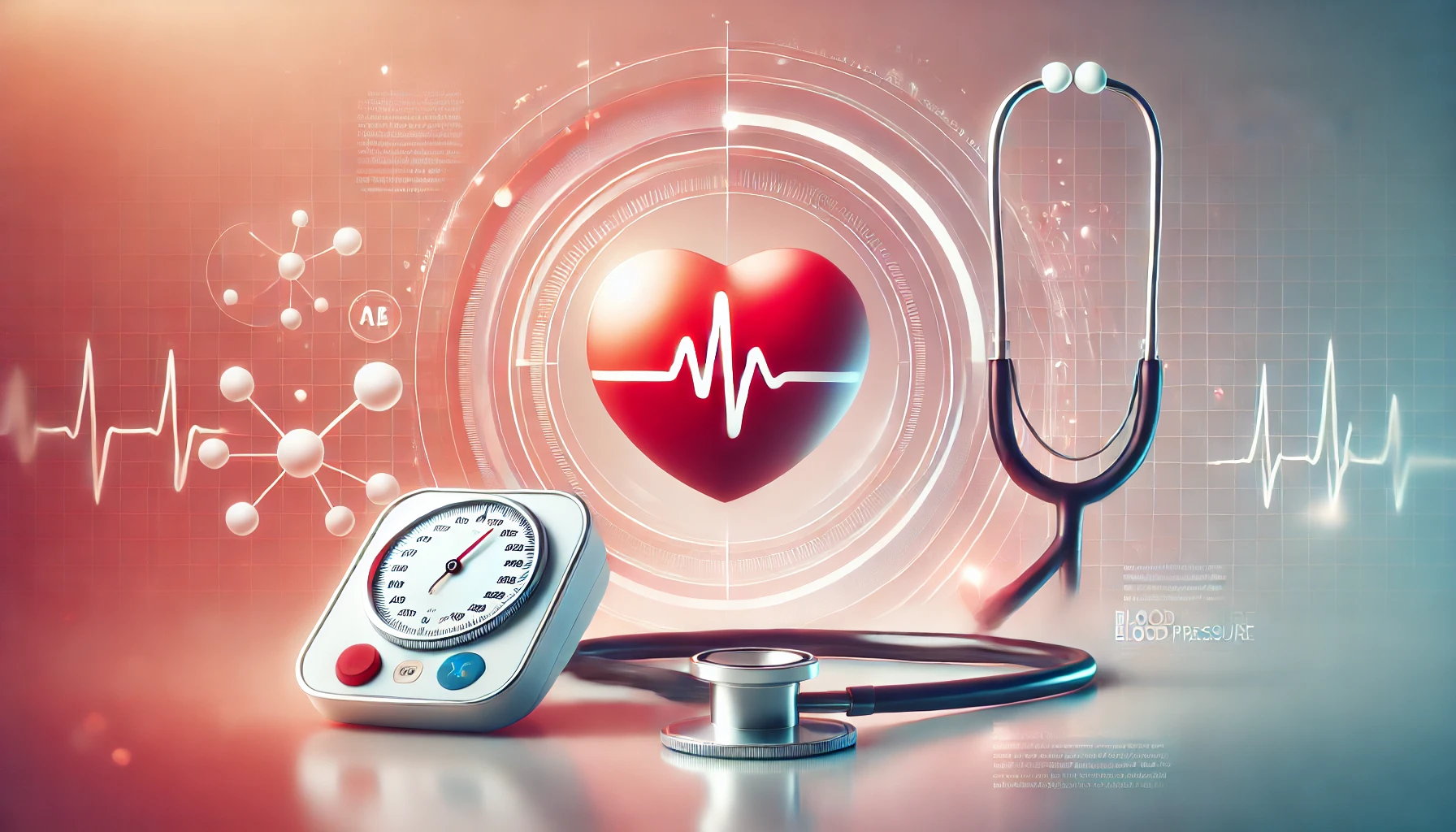
उच्च रक्तचाप के मुख्य कारण और समाधान
उच्च रक्तचाप का इतिहास और इसकी समस्या उच्च रक्तचाप, यानी हाई ब्लड प्रेशर, एक गंभीर …
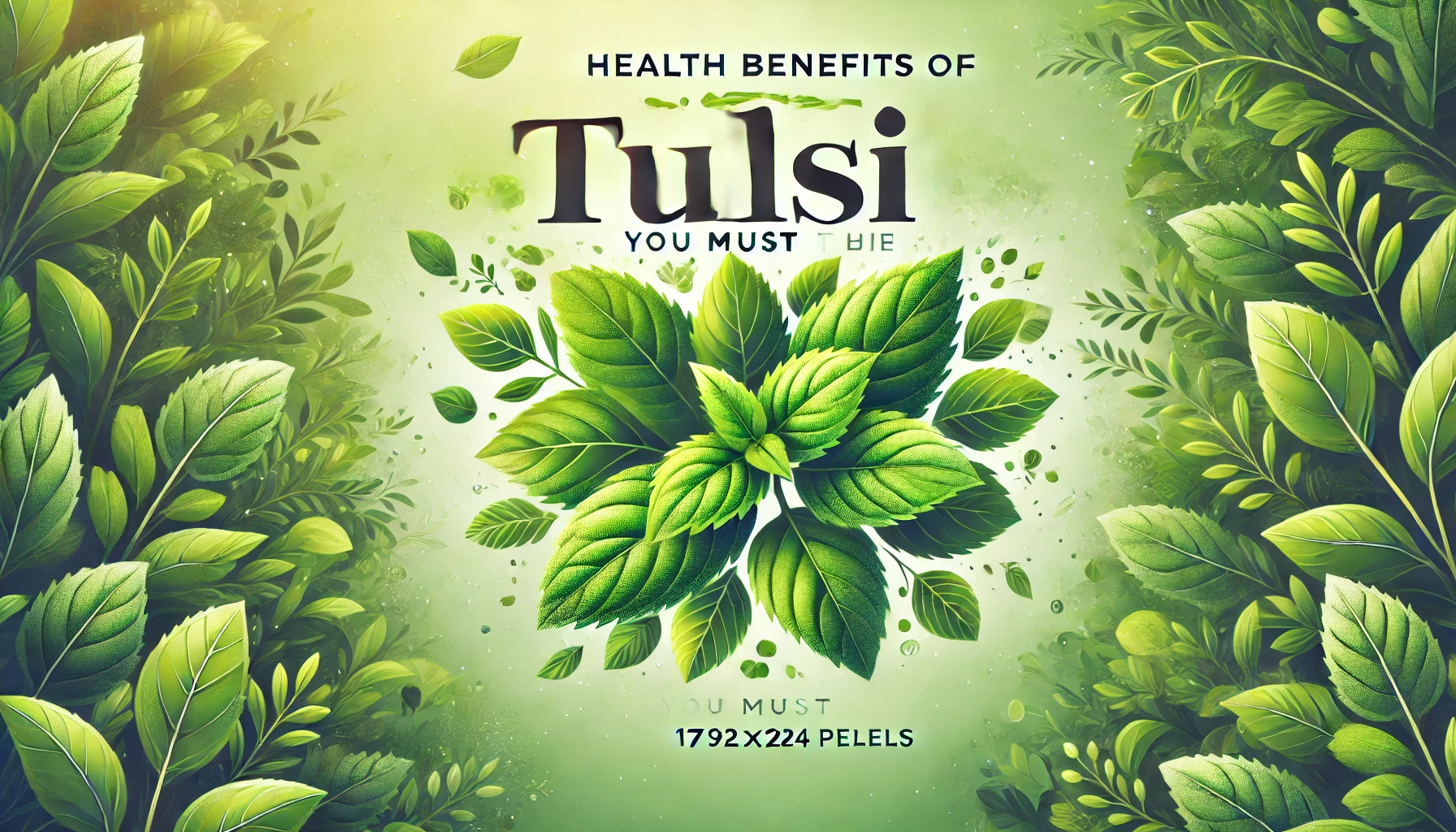
Health Benefits of Tulsi Leaves You Must Know
The History and Origin of Tulsi Tulsi, also known as Holy Basil, holds a sacred …
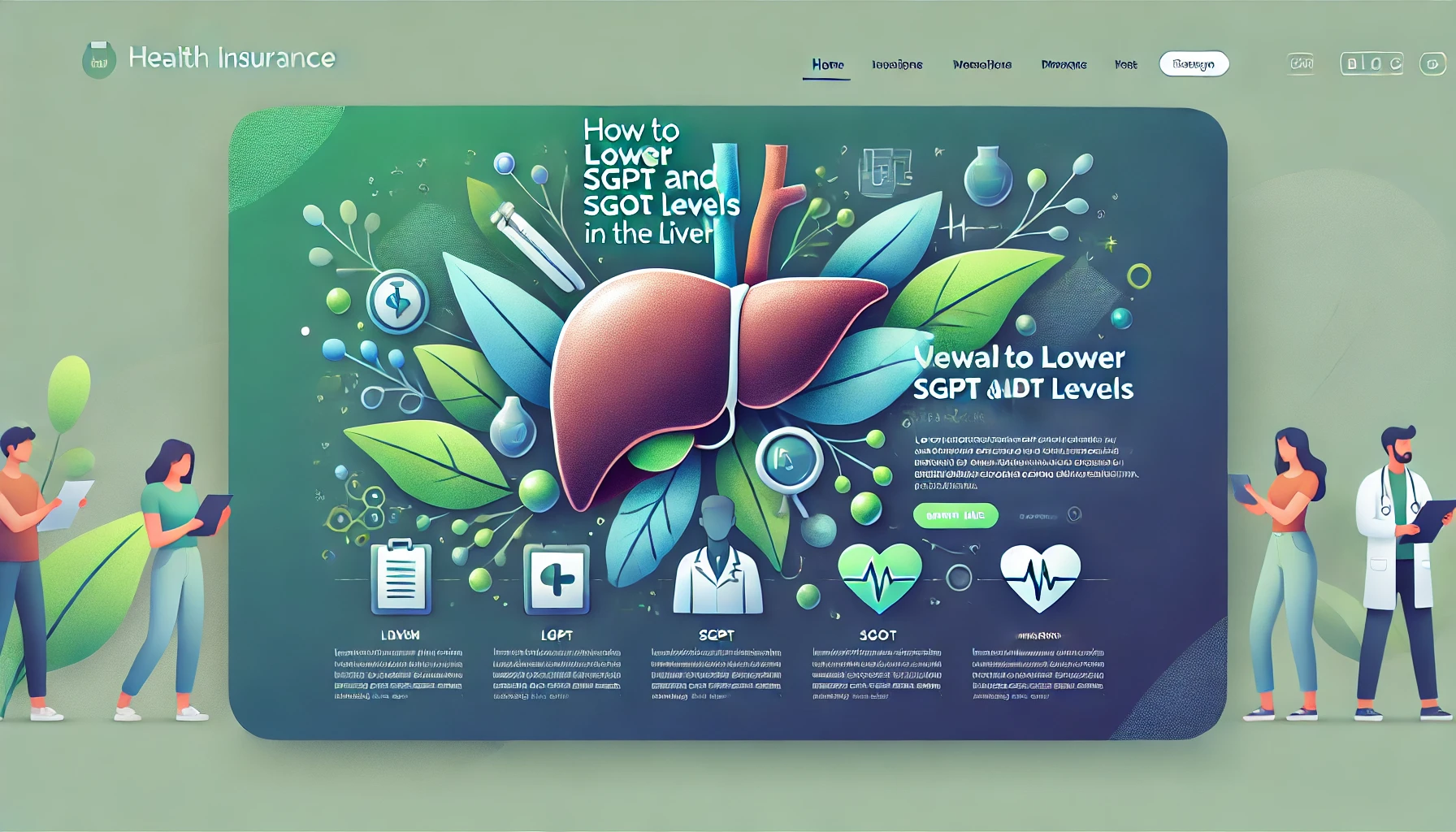
How to Lower SGPT and SGOT Levels in the Liver?
SGPT (Serum Glutamic Pyruvic Transaminase) and SGOT (Serum Glutamic Oxaloacetic Transaminase) are enzymes produced by …
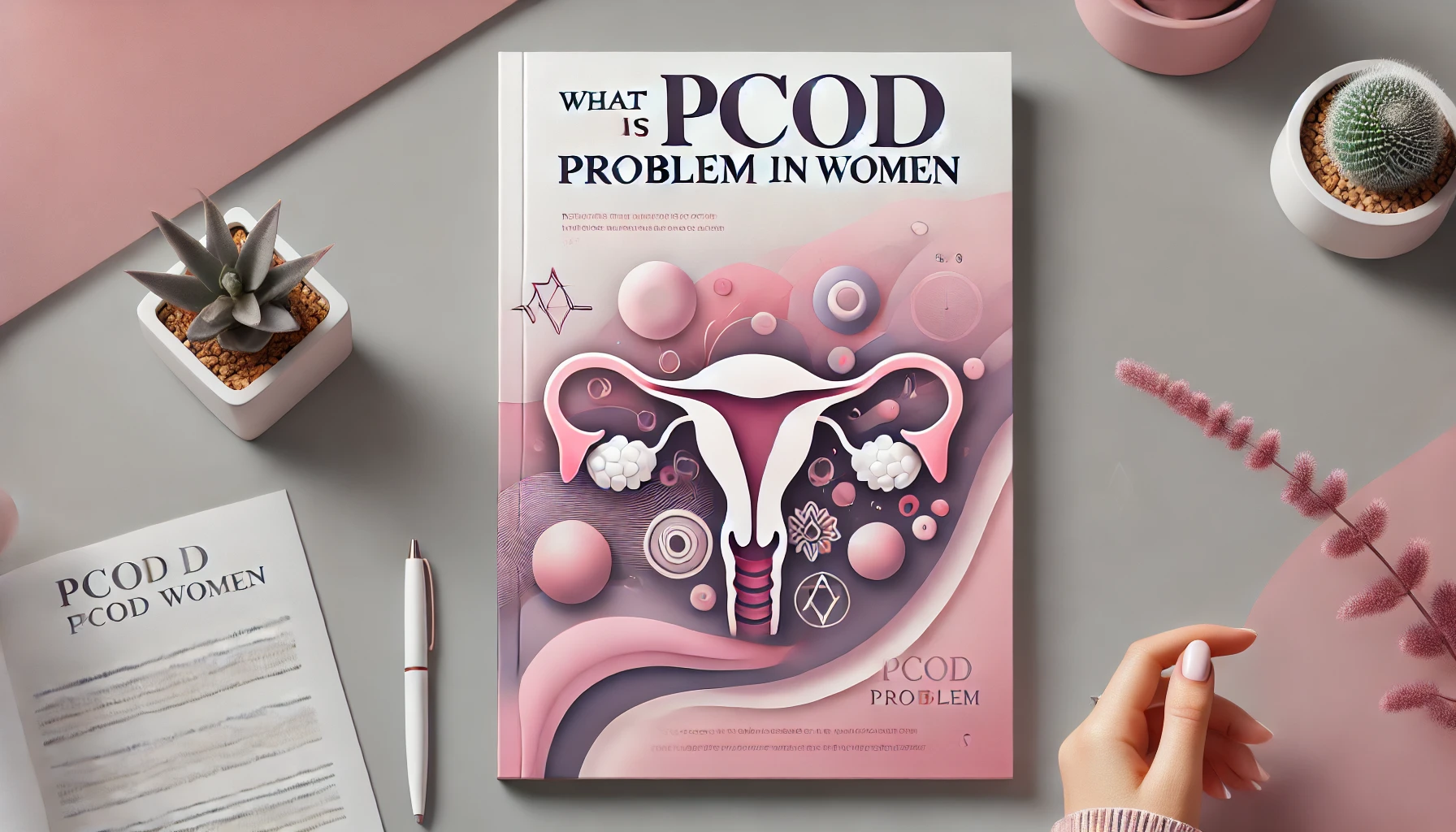
What is PCOD Problem in Women?
Polycystic Ovary Disorder (PCOD) is a hormonal condition affecting millions of women worldwide, primarily during …
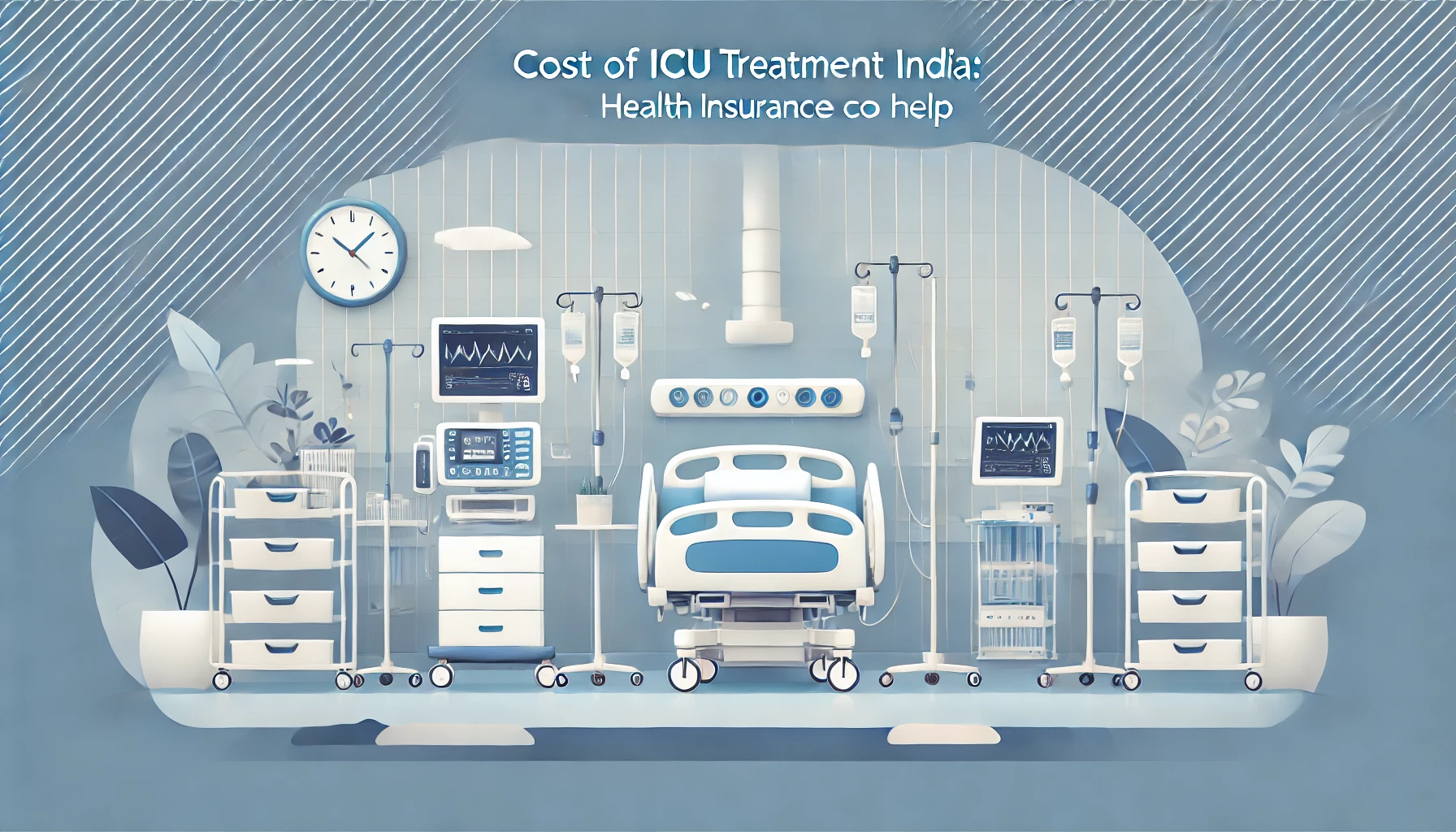
ICU Full Form Types and Equipments
The full form of ICU is Intensive Care Unit—a specialized section of hospitals dedicated to …
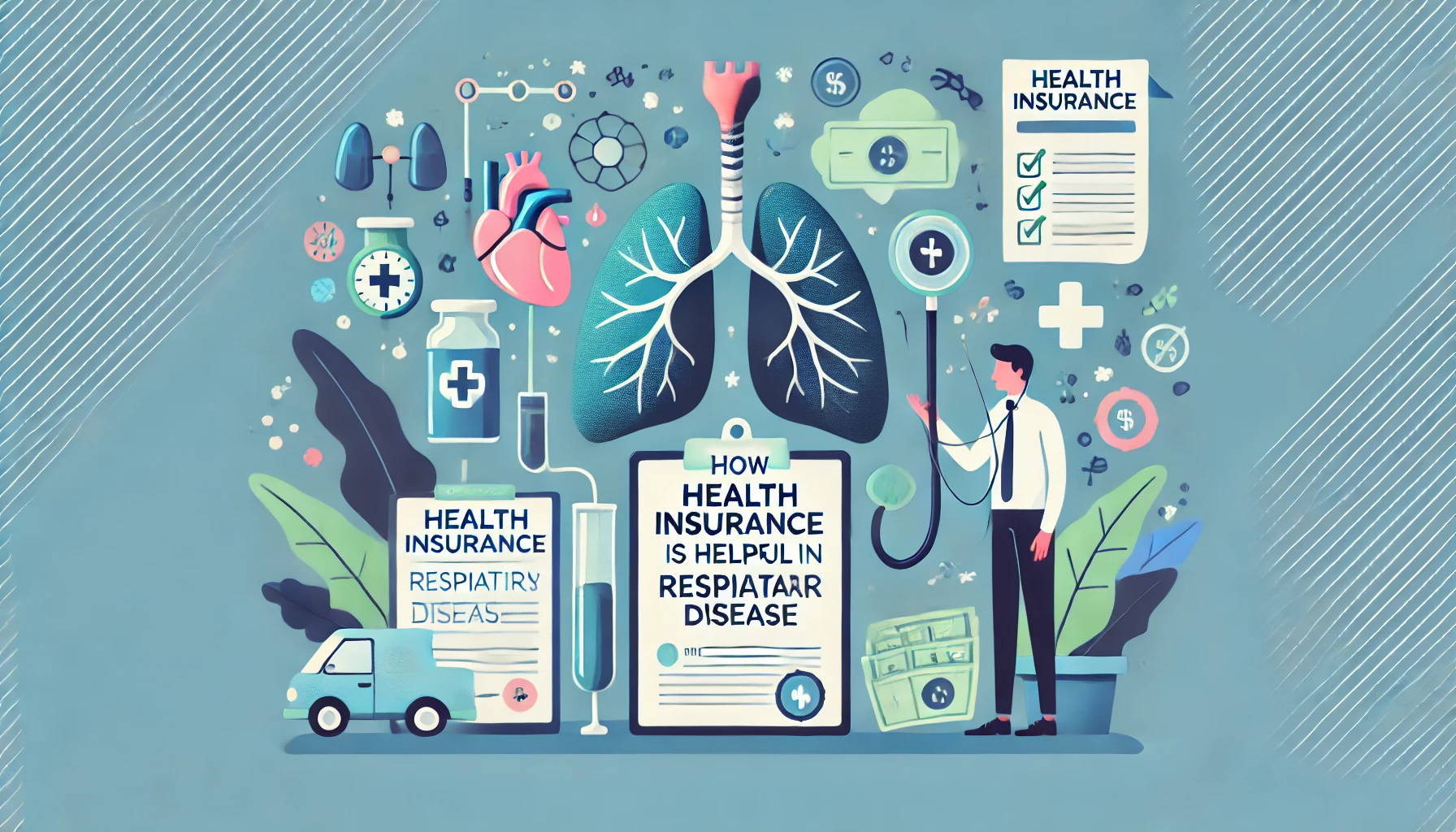
How Health Insurance Can Help in Managing Respiratory Diseases
Respiratory diseases, including asthma, chronic obstructive pulmonary disease (COPD), and respiratory infections, are prevalent in …

How Health Insurance Can Be Used as an Investment Tool
Health insurance is traditionally viewed as a means to protect oneself from the financial burden …

5 Essential Questions to Ask Before Buying Health Insurance
Health insurance is an essential tool for managing medical expenses and ensuring access to quality …
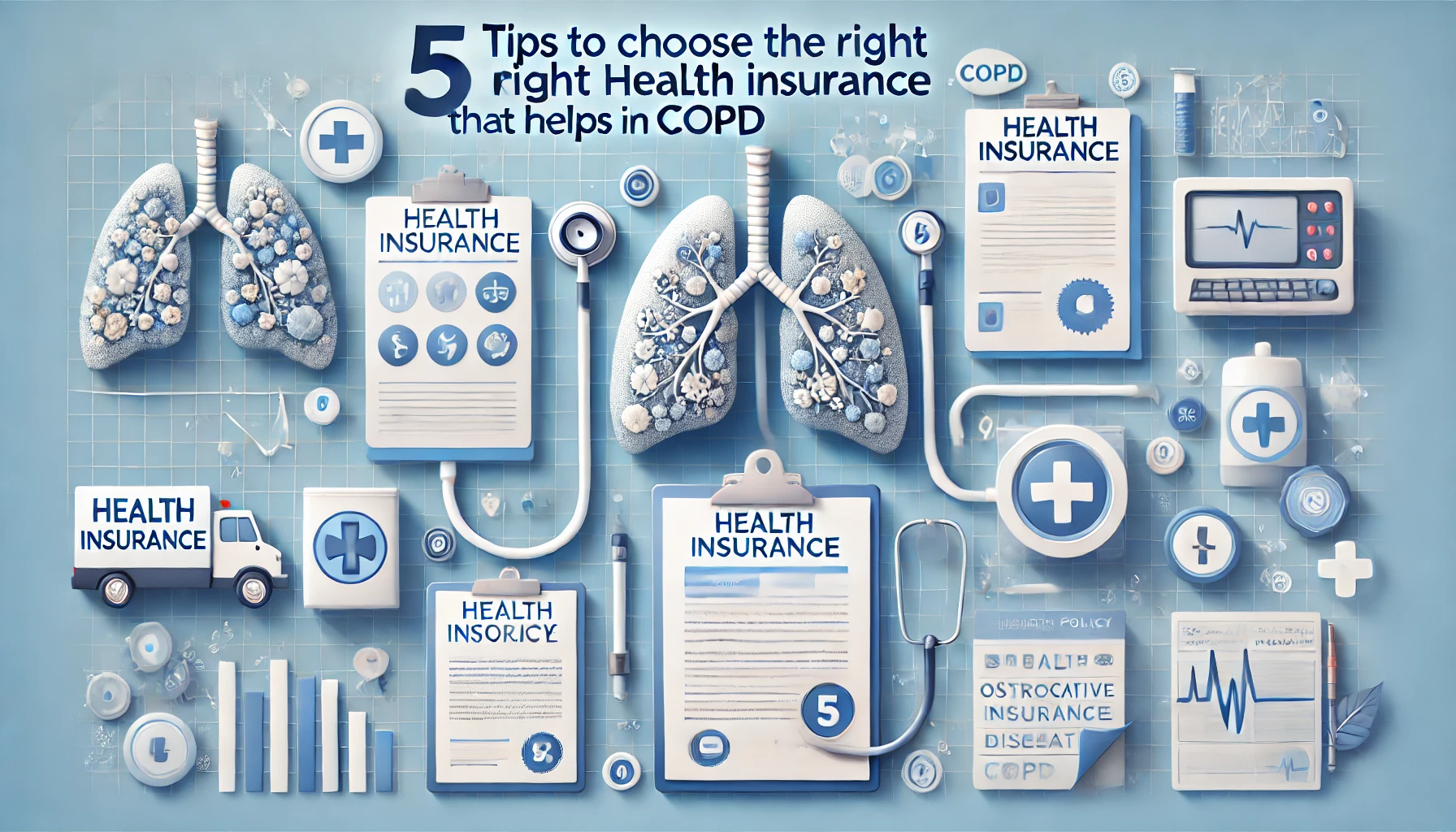
5 Tips to Choose the Right Health Insurance for COPD
Chronic Obstructive Pulmonary Disease (COPD) is a major health issue affecting millions in India. This …

At What Age Should You Opt for Health Insurance
Health insurance is a crucial financial tool that protects individuals from unexpected medical expenses. However, …

Cashless Claim in Health Insurance
Health insurance plays a critical role in ensuring financial protection against rising medical costs. One …

3 Positive Changes That Can Improve Your Health and Well-being in India
In today’s fast-paced world, maintaining good health is often a challenge. However, making a few …

3 Major Advantages of Having Health Insurance in India
Health insurance is no longer an option but a necessity in today’s world, especially in …
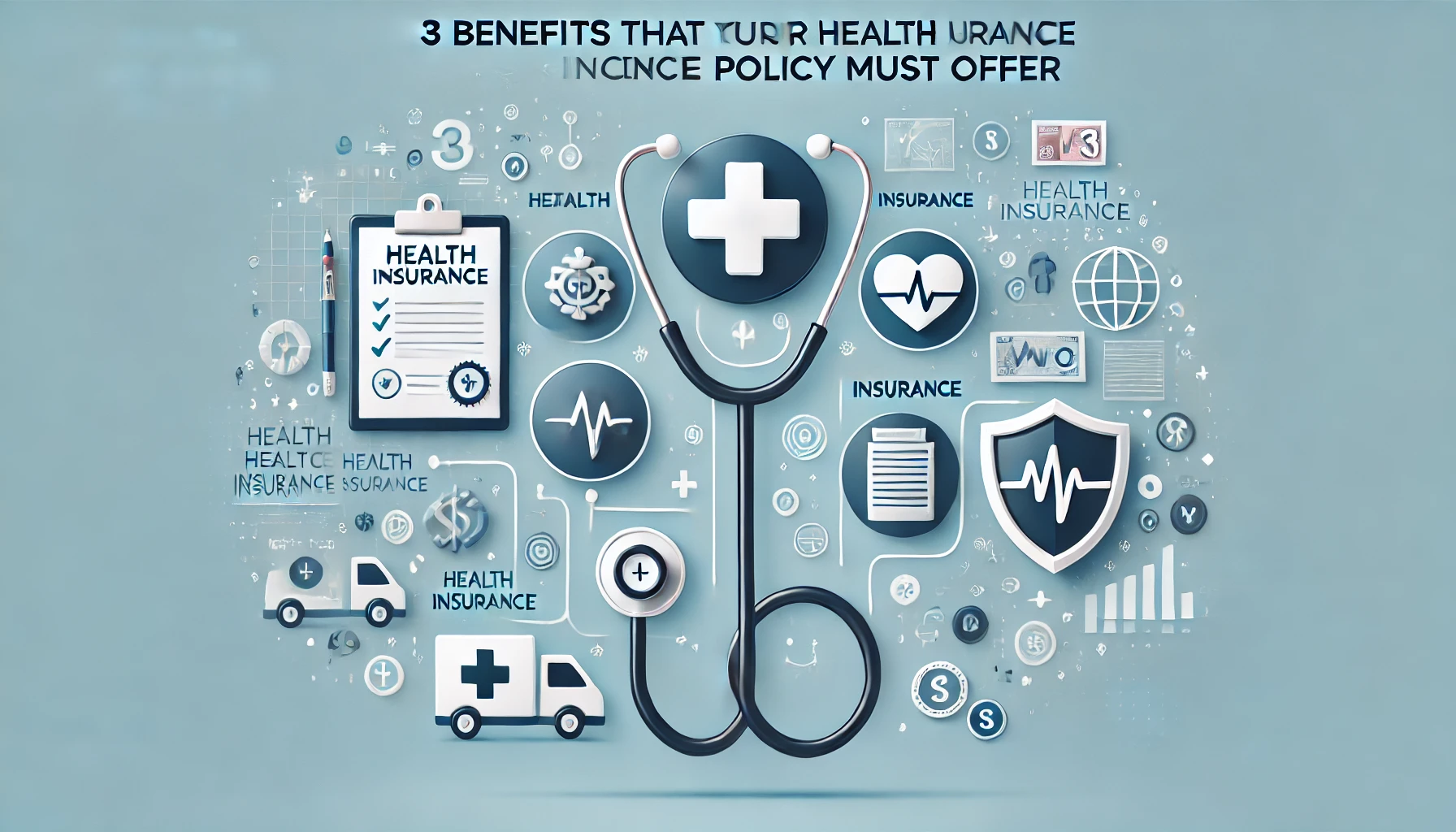
3 Must-Have Benefits in Your Health Insurance Policy for Maximum Coverage
Health insurance has become an essential part of financial planning in India, particularly with rising …

3 Benefits That Make Health Insurance Absolutely Necessary in India
Health insurance has become a critical part of financial planning in India. Rising medical expenses, …

